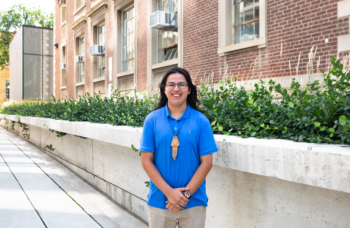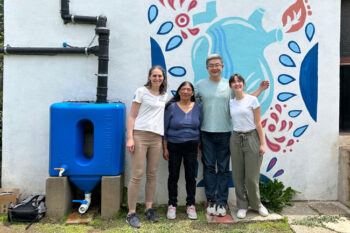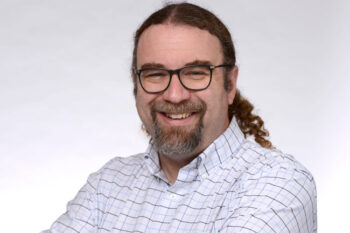This post originally appeared on Engineering Alumni & Friends
Since 1885, the University of Toronto Engineering Society (EngSoc) has brought students together and fostered a unique sense of camaraderie that has become a hallmark of U of T’s Faculty of Applied Science & Engineering. On March 24, all past and present EngSoc officers are invited to attend the EngSoc Heritage Event to reconnect with their peers, share stories and meet the latest generation of U of T Engineering leaders.
In anticipation of this event, last year’s EngSoc president Teresa Nguyen (CivE 1T4 + PEY) and current president Ernesto Diaz Lozano Patiño (Year 4 CivE + PEY) shared their perspectives on U of T Engineering’s unique spirit and the benefits of staying involved long after graduation.
Why did you want to become EngSoc president and what are/were your goals?
Teresa Nguyen (TN): I had been involved with EngSoc over my entire five years of undergrad thanks to some great upper-year mentors. From meeting so many incredible people, I grew very fond of the Skule™ community and the unique brand of services EngSoc provides to Skule™.
I firmly believe that before you complain about a problem, you should try doing something about it first. I put my name down to run in the 2014 EngSoc officer election with the hope of being able to “do something about it.”
In hindsight, my main goals were to preserve and advance the calibre of U of T Engineering’s renowned tight-knit culture, improve legacy operations and pursue new ideas in line with the evolving engineering identity.
Ernesto Diaz Lozano Patiño (EDLP): I wanted to give back to the U of T Engineering community. I saw the opportunity of running for president as a chance to improve the services and representation EngSoc offered — to build a better community.
I have five goals: engage more members to get involved while retaining current volunteers; increase the transparency of our operations and make sure everyone is accountable for their actions; advocate engineering students’ needs more effectively and get more students interested in academic advocacy; foster a sense of unity and collaboration among our community; make sure EngSoc properly represents its constituents and is recognized as the official voice for undergraduate engineering students.
What do you think makes U of T Engineering such a close-knit community?
TN: I think it’s a mix of a few things. The reinforcement of the close-knit community comes in the form of traditions and annual events, such as the firing of Ye Olde Mighty Skule™ Cannon at various events, annual dinner dances, F!rosh Week, Godiva Week and Iron Ring, just to name a few. Professors also play a role in supporting the community by staying engaged with their students and student leaders. In addition, the community is quite privileged to have an academic and professional identity all members can relate to.
EDLP: I think U of T Engineering’s history and traditions constitute the foundations of the united community. As I mentioned, one of our goals is unity and we’ve worked with affiliated organizations to identify strategies to foster more collaboration.
Alumni can find many ways to get involved on EngSoc’s Skule™ Alumni Outreach (Skule AO) website, including mentoring, speaking, judging competitions and just attending events and networking with students. Can you share an example that stands out in your mind of a great alumni volunteer experience?
TN: One of my personal favourite volunteer opportunities is judging the High School Design Competition run by Hi-Skule, EngSoc’s outreach committee. It’s fun to see what high school students are being taught in their math and science classes, what they know about engineering and to inform attending high school teachers all about Skule™.
EDLP: Many of our design teams have great engagement with alumni who mentor junior design leads. Another great event is Skule™ Nite, which is always directed by alumni. This year’s director is alumnus Michael Manning (EngSci 1T3 + PEY).
How do you plan to stay involved with Skule™ after graduation?
TN: I’m an Engineer-in-Training (EIT) in the building science industry right now, but in the future I’d like to guest speak or provide a lecture for one of the building science courses at theDepartment of Civil Engineering offers. I’m sure I’ll find ways to support EngSoc’s future students leaders, too.
EDLP: I’ll stay involved with some of the clubs I participated in while I was an undergrad, such as the U of T student chapter of the Canadian Electrical Contractors Association. I’ll also make sure I don’t miss Alumni SUDS at Spring Reunion if I’m in Toronto.
What’s the most useful advice you’ve received from Skule™ alumni so far?
TN: If you want to achieve something and you need a team to do it, surround yourself with your supporters, let them do the things they do best, and take only the constructive criticism coming from those who say “you can’t do it.”
EDLP: Being president is very stressful and there’s a lot of work. But don’t forget to have fun — it’s a once in a lifetime experience!



